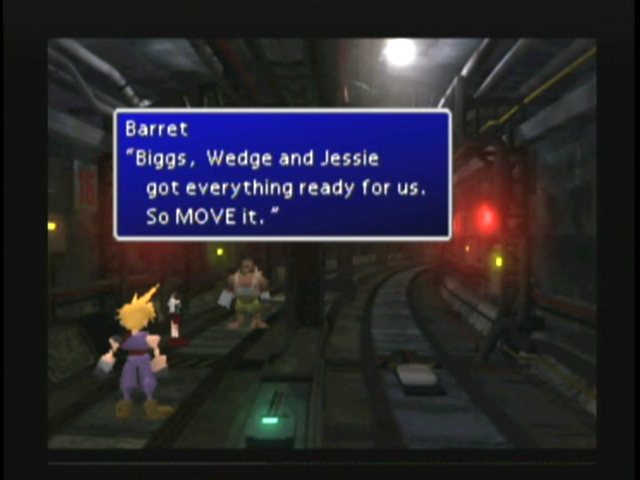

It’s easy to like Shuhei Yoshida, the head of Sony Computer Entertainment Worldwide Studios, the position last held by another charismatic individual, Phil Harrison, who's now with Microsoft.
Yoshida is thoughtful, contemplative, surprisingly funny, and while he’s quick to defend and explain his company’s decisions, he comes across as an executive well aware of Sony’s past mistakes and keeping track of what’s happening in the world around him.
I’ve already filed stories based on my time with Yoshida at E3 (the lack of Vita games and 3D at the press conference, and whether The Last Guardian is coming out), encompassing only a few moments of our wide-ranging 30-minute conversation. I spoke with Yoshida just hours after Nintendo’s press conferences wrapped, an event largely seen as a swing and a miss for the company.
“To me, they [Nintendo] are continuing their very family friendly approach with [a] games for everyone style,” said Yoshida. “I see them, this time, more serious about a mature games or high-definition kinds of games, as well as network services. So it’s interesting how they will balance what they’ve been doing with something new for them that they seem to be trying to do this time.”
Not exactly a endorsement, but what do you expect from the competition?
Sony and Microsoft’s time to shine with glitzy new pieces of hardware seems destined for next year, while E3 2012 was focused on what could be the last major blitz of PlayStation 3 software, PlayStation Network, and the recently launched PS Vita. Yoshida already apologized for the lack of Vita software at the press conference, though had I already been to Sony’s booth, I would have asked him about the surprising absence of first-party games there, too.
Sony has an impressive stable of first-party developers, but many may be committed to early Orbis development, and unlike the past, Sony has not been able to count on third-parties to pick up the slack.
Yoshida admitted it’s been tougher to attract third-parties to Vita. There’s Facebook, iOS and other areas companies are committing resources to.
“It’s understandable when that happens,” he said. “It’s kind of hard for us to get as much support that we’d like to have from publishing partners.”

In the past, Sony’s (and Nintendo's) marketshare in handhelds was much larger. In the past few years, that’s changed. The short-term solution appears to getting hands-on and working closely with third-parties that Sony’s had strong relationships with, a strategy that may have birthed Assassins Creed: Liberation.
Nintendo president Satoru Iwata used his keynote at the Game Developers Conference in 2011 to warn the industry about the dangers creators faced by the rise of social and mobile games. It’s not that social and mobile games were inherently bad, but Iwata worried small, cheap games could undermine everyone else.
Yoshida doesn’t share that opinion, or at least doesn’t appear to be as concerned.
“I always believe core gamers will never leave core gaming consoles because consoles are made for games,” he said. “We believe we understand what core gamers want, and it’s our role to provide the platform for game developers to really create deeper, immersive game experiences. We also appreciate people playing games on smartphones, as well. I play games on my smartphone, as well. Gamers play all kinds of games. I think the smartphone and tablet casual market will continue to grow, but what it’s doing is increasing the population of gamers in the world market.”
To that end, Sony’s established PS Mobile, formerly called PS Suite, a software development kit to get classic PlayStation games onto today’s modern mobile platforms. It’s partnering with HTC, but I couldn’t help but wonder if Sony would continue to ignore the elephant in the room named Apple.
Yoshida didn’t dismiss it outright, and blamed the lack of an iOS version on “technical difficulties.” He did admit it’s impossible to disregard the sheer number of devices Apple has sold, and that Sony is actively “experimenting” with applications to keep players connected to their PlayStation experiences.
“That’s one way in thinking to reach out to that casual audience who have found gaming for the first time,” he said.
Vita is just four months old, but the machine has not been a runaway success. There haven’t been many big games since its February launch here, and one of the chief reasons I’d been considering buying one for myself, Sound Shapes, is now coming to PS3, too. Yoshida didn’t make it sound like Sony was preparing to take the same drastic steps Nintendo did when 3DS stumbled out of the gate, where the company tossed out price cuts and free games.
Still, he was especially proud of announcing support for original PlayStation games, the most requested feature he’s heard from PS Vita owners on Twitter. (He’s really active on Twitter and responds often, by the way).

Yoshida sympathized with players who simply find the $250 device too expensive right now, though.
“Our hardware group always work hard to try to cost reduce,” he said, “so that people who are waiting for PS Vita to eventually, in the future, become more affordable to them [can buy it].”
There’s no timetable for a possible price cut, only that it will happen “eventually.”
One way to extend the value proposition for Vita owners might be PlayStation Plus features, a no-brainer addition that made no appearance at E3. Yoshida actually laughed in a knowing sort of way when I asked him about it.
“We’ve been thinking, yeah,” he said.
Seconds later, a Sony representative made it clear there were no announcements at the moment, but Yoshida’s response should speak volumes. It’s unclear why PlayStation Plus for Vita wasn’t ready to go at E3, but count on it showing up eventually. Maybe Sony will make a bigger push at Tokyo Game Show.
Maybe we’ll see Orbis at TGS, too--I'm willing to bet a teaser. We didn’t touch on Sony’s next hardware very much, except in very broad strokes. I pointed out how it’s surprising to see Sony investing in new properties like Beyond and The Last of Us with the cycle winding down, but Yoshida saw that as an obvious move.

“It’s very important for us to have an opportunity to try something new for creative people,” he said, “while maintaining popular franchises so we can balance the business needs, as well as creative people’s needs.”
Though not explicitly said, it seems clear Yoshida’s group is deeply involved with Orbis. Vita was a “defining project” for the company, as it represented the first time the development side had a profound influence on hardware features. It was Yoshida’s job to connect the Japanese hardware developers with the right creative people from his departments, and make sure everyone’s needs were met.
“I moved to Japan from the US and every week, every day, I met with the hardware guys and joined the discussions and helped them communicated with the right studios,” he said.
He “absolutely” expected that relationship to continue going forward.
And forward may not be far off. Yoshida's tasked with the mammoth duty of managing Sony's development portfolio as several internal and external transitions are underway. We'll see how those ideas pan out in the years ahead.